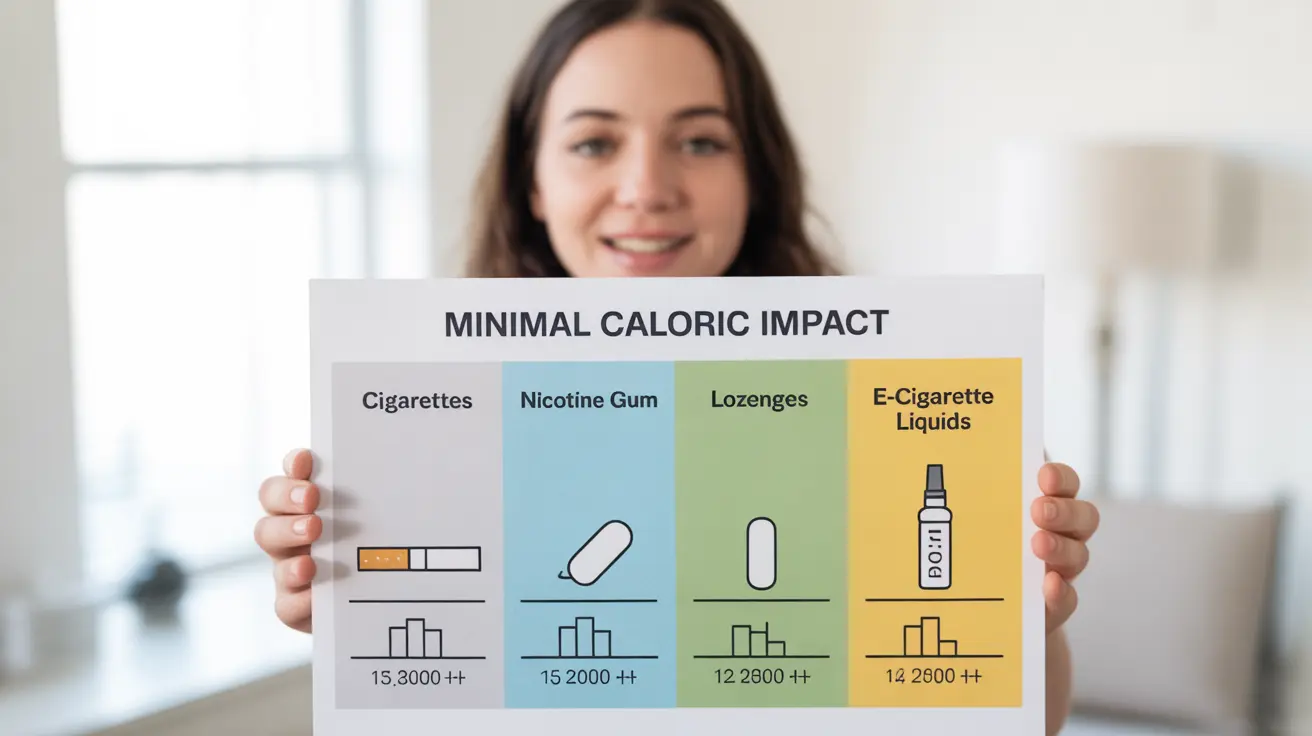Many people wonder about the relationship between nicotine and calories, especially when considering smoking, vaping, or trying to quit nicotine products. While the connection between nicotine and weight management is complex, it's important to understand the facts about nicotine's caloric content and its effects on the body.
In this comprehensive guide, we'll explore whether nicotine contains calories, how it affects appetite and weight, and address common concerns about nicotine use and weight management.
Nicotine and Caloric Content
Nicotine itself does not contain calories. As a chemical compound, nicotine is a stimulant that affects the body's nervous system but does not provide energy in the form of calories. However, the delivery method of nicotine can introduce minimal calories to your system.
Delivery Methods and Caloric Impact
Different nicotine delivery methods have varying caloric implications:
- Traditional cigarettes: 0 calories
- Nicotine gum: 2-4 calories per piece (from sweeteners)
- Nicotine lozenges: 1-2 calories per lozenge
- E-cigarette liquids: Minimal calories from flavorings and carrier liquids
Nicotine's Effect on Metabolism and Appetite
While nicotine doesn't contain calories, it does influence metabolism and appetite in several ways:
- Increases metabolic rate temporarily
- Suppresses appetite
- Affects blood sugar levels
- Influences the release of neurotransmitters related to hunger
Impact on Weight Management
Nicotine's appetite-suppressing effects can lead to reduced caloric intake, but this should not be viewed as a healthy weight management strategy. The health risks associated with nicotine use far outweigh any potential weight management benefits.
Weight Changes After Quitting Nicotine
Many people experience weight changes after quitting nicotine, but understanding the causes can help manage this transition:
- Return of normal appetite
- Changes in metabolism
- Increased taste and smell sensitivity
- Potential stress eating
- Oral fixation replacement with food
Healthy Alternatives for Weight Management
Instead of relying on nicotine for weight control, consider these healthier alternatives:
- Regular physical activity
- Balanced, nutritious diet
- Stress management techniques
- Mindful eating practices
- Professional support for weight management
Frequently Asked Questions
Does nicotine contain calories or add to my daily caloric intake? No, nicotine itself does not contain calories. However, certain nicotine delivery methods like gum or lozenges may contain minimal calories from other ingredients.
Can vaping or e‑liquid flavors contribute meaningful calories compared with smoking? While e-liquids may contain trace calories from flavorings and carrier liquids, the caloric contribution is negligible and not meaningful to daily caloric intake.
How does nicotine affect appetite and could it cause weight loss or weight gain? Nicotine acts as an appetite suppressant and can temporarily increase metabolism, potentially leading to weight loss. However, these effects are temporary and not a healthy approach to weight management.
Will I gain weight after quitting nicotine, and what causes that change? Some people may gain weight after quitting nicotine due to restored appetite, metabolic changes, and altered eating habits. This weight gain can be managed through healthy lifestyle choices.
Is using nicotine a safe or effective way to control my weight compared with healthy diet and exercise? No, using nicotine for weight control is neither safe nor recommended. The health risks of nicotine use far outweigh any temporary weight management benefits. Focus on sustainable, healthy approaches like proper nutrition and regular exercise instead.
Making informed decisions about your health is crucial. While nicotine may affect weight and appetite, its use for weight management is dangerous and ineffective compared to healthy lifestyle choices. If you're concerned about weight management while quitting nicotine, consult with healthcare professionals who can provide safe, effective strategies for maintaining a healthy weight.




